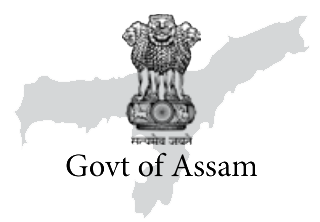Tstands as tea for many, and it also stands for Tocklai for those who know the history of the beverage in Assam. The Tocklai Tea Research Institute (TTRI) then based amid sylvan surroundings on a piece of land provided by Jorehaut Tea Company Ltd., and now amid urban infrastructure, is synonymous with all things related to tea from the garden to the factory.
Located about five kilometre south of Jorhat town, TTRI is the world’s oldest tea research institute. Founded in 1911, the institute’s primary task is to carry out research on all aspects of tea cultivation and processing with the principal objective of improving overall productivity and quality.
It was earlier known as Tocklai Experimental Station. But after the formation of Tea Research Association in 1964 with its centre at Tocklai, it expanded its horizon to tea research. The Assam Government along with the tea industry shared the expenditure for its establishment. In 2014, it got its present nomenclature.
“Ever since TTRI was instituted, it has been working for the tea industry on development of new clones and new varieties. So far, we have developed more than 200 such varieties. We have released 34 clones to the tea industry. These clones are being used for tea cultivation. Release of the clone is based on research done by us in multi-location tracks,” said Dr Azariah Babu, the Director of TTRI, while talking to Asom Barta.

Bidyananda Barkakoty, adviser, North Eastern Tea Association and former Vice Chairman of Tea Board of India acknowledges the fact. “Tocklai’s contribution to the agricultural practices in tea is immense. Tocklai’s R&D has not only benefited Assam or India’s tea industry alone but also benefited many other tea producing nations,” he told this newsletter.
Biotechnological research on tea is one of the prime tasks of TTRI. A clone is a vegetatively propagated plant from the stem. These new tea clones are not only good to counter adverse climatic situations like drought but also have the potential to yield quality tea. The popularity of clones gained momentum in tea cultivation since the standardisation of vegetative propagation and the release of the three clones – TV1, TV2 and TV3 by Tocklai in 1949. The first Tocklai clone, TV1, produces an excellent and consistent quality of CTC tea. It is the cultivation of this tea clone in the 1950s, in Assam, that propelled the State to become the highest CTC tea producing region in the world.

Dr. Babu said that some of the clones which are suitable for Assam may not be suitable for other tea growing areas. “For example, the climatic condition of Cachar is not similar with the climatic condition of Dibrugarh or the tea growing areas of North Assam. So, we have been releasing region specific clones to the industry,” Babu schooled this reporter.
One of the major aspects of Tocklai’s research is on tea cultivation soil and related issues. “This is a monoculture plantation, a perennial crop. For better tea production, soil’s quality should be good. In fact, all our clients have benefited from our guidance.”
Organic tea is yet another field where TTRI has been conducting long-term experiments. Through a series of investigations, it has developed a package of practices for organic tea in north-eastern States and this package is now available to the tea gardens.
The Director revealed that in recent years TTRI has been conducting research on impact of climatic change in tea production in the State. It has also come out with sustainability standards for the industry called Good Agricultural Practices (GAP) and Good Manufacturing Practices (GMP). TTRI promises to contribute towards ‘a people and planet positive’ tea industry by 2030.
A key area that has emerged as TTRI’s focus area is small tea growers. These growers have emerged as major contributors to State’ total annual tea production. To empower them, a dedicated training and research centre has been established at TTRI. Dr. Babu is very optimistic. “Today, Assam produces over
50 percent of India’s total tea. Out of this, over 50 percent is contributed by small tea gardens. This number will continue to go up,” he said.
Rajen Bora, president of the All Assam Small Tea Growers’ Association is all praises for TTRI’s efforts. “I had the opportunity to join a training-cum-tea workshop programme in Tocklai recently. It was a very impressive programme.
Acknowledging its immense contribution, the Assam Government recently provided ₹10 crore to TTRI to further tea research for the benefit of tea, and all its stakeholders.














